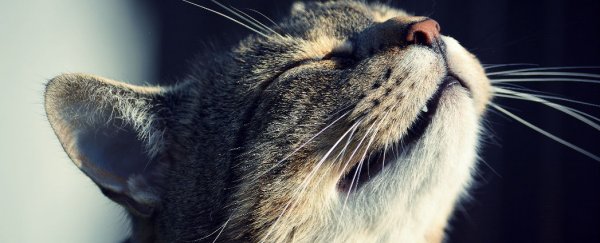At some point, most of us have probably been asked the question: "Would you prefer to be blind or deaf?" While we tend to consider sight and sound as our two main senses - and often take our sense of smell for granted - a life without functioning olfactory nerves would not be easy, by any measure.
"We generally do not think about our sense of smell too often," writes geneticist Darren Logan of the Wellcome Trust Sanger Institute in the UK. "Yet it contributes hugely to the multi-sensory perception of our world."
Writing on the institute's blog, Logan says that 80 percent of the flavour we taste in food relies on smell. "Without it we are restricted to just five basic tastes," he says. "In addition, we routinely use smell to warn of danger and signal safety, to attract partners and customers (think 'new car smell') and to evoke memories."
Smell is so integral to our functioning as humans that an inability to smell certain smells can even predict how long you'll live. Sarah Kathleen Page, a memebr of a charity called Fifth Sense, dedicated to supporting people who can't smell, explained her life without smell to Logan:
"We cannot smell the gas leak slowly filling up our home, we cannot smell our newly born daughter, we cannot fully enjoy the sensory pleasures most people take for granted. We hope for a doctor that believes us when we say we cannot smell and long for a friend that never forgets. Without someone to say, 'I understand, I believe you and I will do my best to help' we live in a very lonely world."
It's such a debilitating condition that Logan is now investigating what causes people to be lose their sense of smell. The condition - known as anosmia - is thought to affect some two million Americans, though concrete data are hard to come by.
At the blog, Logan describes how one's sense of smell is largely controlled by genetics. "In fact, olfaction, the technical term for our sense of smell, is sufficiently important to us that the molecular odour receptors in our nose are encoded by the largest single family of genes in our genomes," he says.
Partnering with researchers at the Monell Chemical Senses Centre in Philadelphia, the team launched a social media campaign (#longlostsmell) to find families where people have ansomia. "In one case, we found a family with anosmia across five generations; each time, the condition was inherited from parent to child," Logan writes.
They mapped each participant's family tree, collected saliva, and are now sequencing their genomes. The team then plans to compare the genes of family members who can and can't smell to locate the precise gene responsible for smelling.
But identifying the genetic causes of anosmia is only the first step in a long journey towards finding a cure, says Logan: "We aim to press on and investigate how these genes contribute to the complex neural circuits that connect our noses and brains. Only then can we evaluate them as potential targets for clinical intervention."
We can't wait to hear about the results, because safety concerns aside, no one should have to miss out on the pleasures of smelling sizzling bacon, freshly brewed coffee, or rain on a dewy morning.

